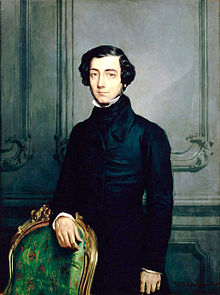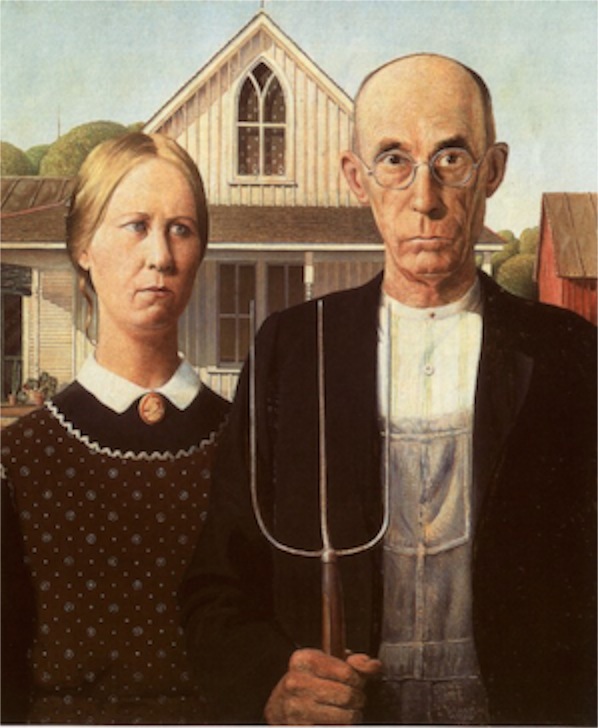Work Ethic
04/08/12 05:09
The role of work in religious life was a frequently debated topic during the Protestant reformation. Heavily influenced by his studies of the biblical book of Romans, Martin Luther asserted that salvation does not come about as the result of human labor, but rather from grace – a free gift from a loving God. John Calvin took a similar approach. Neither, however, took the perspective that work was of no value. There might be some theoretical possibility that a believer might conclude that since salvation comes from God’s grace it doesn’t matter what a person does in this life. However, there is very little evidence that the followers of Calvin or Luther lived their lives in such a way.
 Both Calvin and Luther celebrated work as a calling from God. Calvin went so far with his ideas about predestination to assert that success in this world was a sign of salvation. Hard work and good deeds bring rewards in this life. Calvin took it a step farther. He saw the rewards of this life as a kind of indication of what might come to a person after their death.
Both Calvin and Luther celebrated work as a calling from God. Calvin went so far with his ideas about predestination to assert that success in this world was a sign of salvation. Hard work and good deeds bring rewards in this life. Calvin took it a step farther. He saw the rewards of this life as a kind of indication of what might come to a person after their death.
 Whatever logical flaws might be a part of the ideological framework, the Protestant work ethic became firmly ingrained in our culture. The 19th century political thinker and sociologist Alexis de Tocqueville observed in his book Democracy in America: “I think I can see the whole destiny of America contained in the first Puritan who landed on those shores.” The austere English Protestants who were among the early 17th century settlers in what became the United States brought with them a dedication to hard work, frugal ways and strong moral limits. Those same people were the founders of the church that we have inherited. And their ideas have, in ways both subtle and obvious, influenced how we think about work.
Whatever logical flaws might be a part of the ideological framework, the Protestant work ethic became firmly ingrained in our culture. The 19th century political thinker and sociologist Alexis de Tocqueville observed in his book Democracy in America: “I think I can see the whole destiny of America contained in the first Puritan who landed on those shores.” The austere English Protestants who were among the early 17th century settlers in what became the United States brought with them a dedication to hard work, frugal ways and strong moral limits. Those same people were the founders of the church that we have inherited. And their ideas have, in ways both subtle and obvious, influenced how we think about work.
I confess that I can be quick to judge others who appear to be less dedicated to work than I. The concept of hard work is deeply ingrained in my sense of what it means to be a human being. As much as I can intellectually embrace the concept that we do not “earn” our salvation through our hard work, I have a sense that hard work is an essential element of a moral life. This reflects a world-view that is shared by other Americans, according to a study by Eric Uhlmann published last year in the Journal of Experimental Social Psychology. In the study, American and Canadian college students were asked to solve word puzzles involving anagrams. But first, some were exposed to salvation-related words like “heaven” and “redeem,” while others were exposed to neutral words. The researchers found that the Americans – but not the Canadians – solved more anagrams with salvation on their minds. They worked harder.
 It is pretty hard to avoid thoughts about religion, salvation, and other religious notions in my workplace. It seems that we always have some thoughts of a bigger picture ingrained in what we do. And we work hard. The people who are employed by our church all put in extra unpaid hours. It just happens. We come to the end of a workday and then continue to talk about work for another half hour after we might normally have gone home. We make a few phone calls and send some e-mails from home. We come in early and stay late day after day. We don’t do this because of some external pressure. It is just the way that we approach the work that we do. We care. We want the church to succeed. We want to serve the people.
It is pretty hard to avoid thoughts about religion, salvation, and other religious notions in my workplace. It seems that we always have some thoughts of a bigger picture ingrained in what we do. And we work hard. The people who are employed by our church all put in extra unpaid hours. It just happens. We come to the end of a workday and then continue to talk about work for another half hour after we might normally have gone home. We make a few phone calls and send some e-mails from home. We come in early and stay late day after day. We don’t do this because of some external pressure. It is just the way that we approach the work that we do. We care. We want the church to succeed. We want to serve the people.
I don’t think any of us would be so crass as to say that we believe that all of this extra work will somehow give us an easier path to salvation than other people. We don’t do what we do in order to gain some kind of personal preference in life after death. We work harder, in part, because there are lots of short-term rewards for hard work. When the church succeeds, we succeed. When people praise us for what we have done, we feel good. I am proud of the work that our leadership team does every day.
But there is another side to those positive feelings. Sociologists of religion have long noted that we Protestants are harsher in our judgments of others. As long ago as the ‘70’s studies were published that found that American who score high on the Protestant Ethic Scale of self-reliance and self-discipline also show marked prejudice against racial minorities and the poor, hostility toward social welfare efforts, and self-denigration for traits such as obesity and laziness.
We may live many generations after the Pilgrims and Puritans landed at Plymouth Rock, but we still have that Puritan ethic deeply engrained in our psyches. It seems that de Tocqueville got us right. The Puritans still are influencing our destinies.
About twenty of us will be gathering for breakfast at the church this morning and we will work through the morning to lay the foundation for this fall’s budget planning and programs. We are convinced that we can continue to strengthen our processes and improve our congregation. It is hard work to listen carefully and to create a budget that reflects not only our own personal desires and priorities, but reflects that wishes and priorities of the wider church. We know from experience that a successful budget is based on doing the will of the members of the church. This hard work is valuable and important.
Still, there will be a few comments about the people who are not at the retreat. Despite our best efforts, we remain too quick to judge others. The hard work and the sense of moral superiority seem to go hand in hand. So we need to be careful. Those who participate in the retreat are not somehow better than those who are not present. The work itself is the gift and the reward and it is freely offered to all of the church’s leaders. We have inherited positive and negative traits from our forebears.
Maybe, if we work hard enough, we can overcome our negative tendencies.
More likely, if we succeed, it will be because of the grace of God and not because of the amount of work we do.


I confess that I can be quick to judge others who appear to be less dedicated to work than I. The concept of hard work is deeply ingrained in my sense of what it means to be a human being. As much as I can intellectually embrace the concept that we do not “earn” our salvation through our hard work, I have a sense that hard work is an essential element of a moral life. This reflects a world-view that is shared by other Americans, according to a study by Eric Uhlmann published last year in the Journal of Experimental Social Psychology. In the study, American and Canadian college students were asked to solve word puzzles involving anagrams. But first, some were exposed to salvation-related words like “heaven” and “redeem,” while others were exposed to neutral words. The researchers found that the Americans – but not the Canadians – solved more anagrams with salvation on their minds. They worked harder.

I don’t think any of us would be so crass as to say that we believe that all of this extra work will somehow give us an easier path to salvation than other people. We don’t do what we do in order to gain some kind of personal preference in life after death. We work harder, in part, because there are lots of short-term rewards for hard work. When the church succeeds, we succeed. When people praise us for what we have done, we feel good. I am proud of the work that our leadership team does every day.
But there is another side to those positive feelings. Sociologists of religion have long noted that we Protestants are harsher in our judgments of others. As long ago as the ‘70’s studies were published that found that American who score high on the Protestant Ethic Scale of self-reliance and self-discipline also show marked prejudice against racial minorities and the poor, hostility toward social welfare efforts, and self-denigration for traits such as obesity and laziness.
We may live many generations after the Pilgrims and Puritans landed at Plymouth Rock, but we still have that Puritan ethic deeply engrained in our psyches. It seems that de Tocqueville got us right. The Puritans still are influencing our destinies.
About twenty of us will be gathering for breakfast at the church this morning and we will work through the morning to lay the foundation for this fall’s budget planning and programs. We are convinced that we can continue to strengthen our processes and improve our congregation. It is hard work to listen carefully and to create a budget that reflects not only our own personal desires and priorities, but reflects that wishes and priorities of the wider church. We know from experience that a successful budget is based on doing the will of the members of the church. This hard work is valuable and important.
Still, there will be a few comments about the people who are not at the retreat. Despite our best efforts, we remain too quick to judge others. The hard work and the sense of moral superiority seem to go hand in hand. So we need to be careful. Those who participate in the retreat are not somehow better than those who are not present. The work itself is the gift and the reward and it is freely offered to all of the church’s leaders. We have inherited positive and negative traits from our forebears.
Maybe, if we work hard enough, we can overcome our negative tendencies.
More likely, if we succeed, it will be because of the grace of God and not because of the amount of work we do.